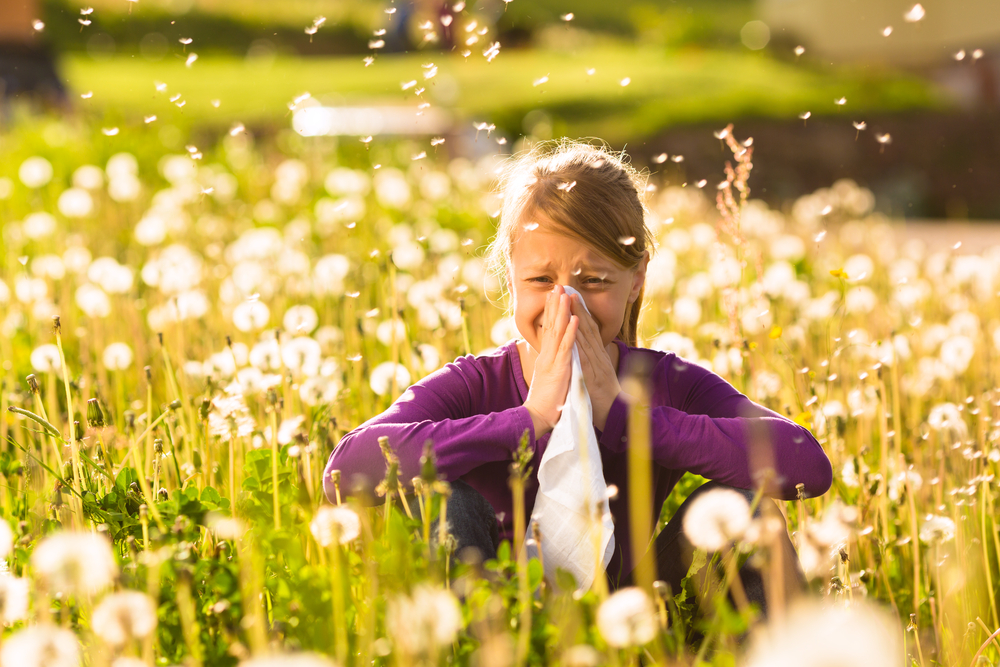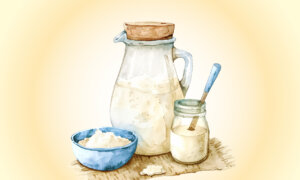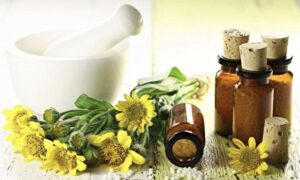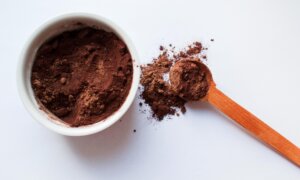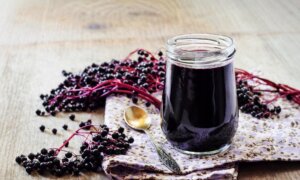Allergies may seem synonymous with discomfort and medications, but they don’t have to be. Abundant natural remedies are as close as your backyard garden or local health food store. Here are four common, inexpensive ways to combat your allergy woes.
Butterbur
Butterbur is a shrub native to Europe, Asia, and North America. Its leaves were traditionally used to wrap butter to keep it from melting in warm weather—giving the plant its name. Butterbur has long been used in traditional medicines, most commonly to treat headaches and migraines, alleviate pain, heal wounds, and treat colds, asthma, and allergy symptoms.
In traditional Chinese medicine, butterbur is known as kuan dong and is used to strengthen the cardiovascular system, eliminate toxins, and remove worms.
Butterbur’s anti-inflammatory properties ease allergy symptoms, such as itchy eyes, cough, and congestion.
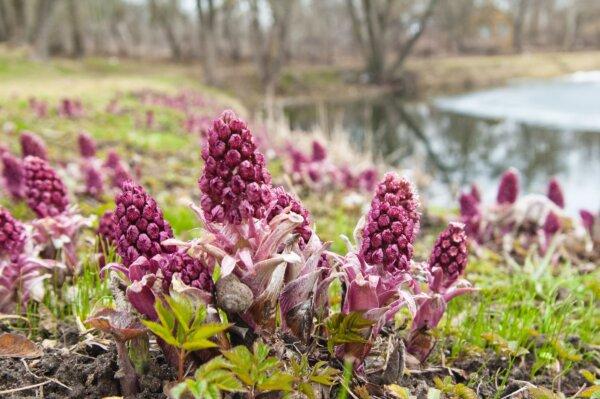
Butterbur (Igor Sokolov (breeze)/Shutterstock)
A randomized controlled trial published in the BMJ compared butterbur and cetirizine—an antihistamine medication used to treat allergies in participants with seasonal allergic rhinitis (hay fever). A total of 125 patients were given either butterbur or cetirizine for two consecutive weeks. Results show that butterbur worked as well as cetirizine for seasonal allergic rhinitis, with the authors noting that two-thirds of participants in the cetirizine group reported adverse events related to its sedative effects (drowsiness and fatigue) despite it being a nonsedating antihistamine.
Both butterbur root and leaves are used medicinally, but for treating allergies, but the leaves are preferred. Butterbur contains pyrrolizidine alkaloids (PAs) that can have a toxic effect on the liver, so the plant must be processed and not eaten raw. When buying butterbur supplements, ensure that you find one with the PAs removed.
Stinging Nettle
Stinging nettle is a powerful herb with a long history of use in many traditional medicines. The plant is native to Europe, Africa, and Western Asia but is now common worldwide. Stinging nettle has been traditionally used as a diuretic to treat urinary system disorders, to treat gout as it flushes uric acid from the system, to treat benign prostate hyperplasia (enlargement of the prostate), and for inflammatory conditions such as arthritis. It is also well-known for the treatment of seasonal allergies and all of their accompanying symptoms. In traditional Chinese medicine, stinging nettle is used to purify the blood of toxins, regulate metabolism, and support the lungs, kidneys, and liver.
Stinging nettle is an antioxidant, anti-inflammatory, and a natural histamine controller. In recent years, it has become an increasingly popular natural remedy for treating seasonal allergies, and some doctors now recommend taking a freeze-dried preparation before allergy season begins.
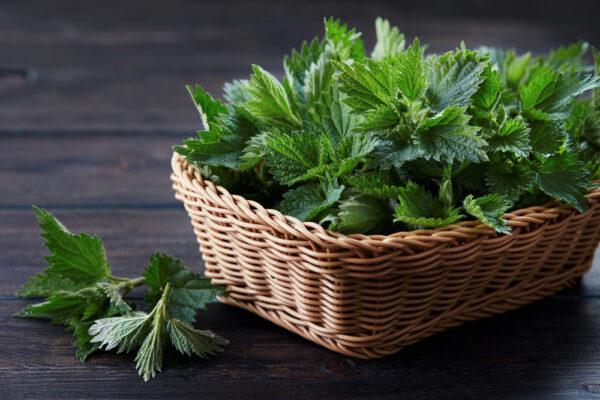
Stinging nettle (Melica/Shutterstock)
A double-blind, randomized study published in Planta Medica compared the effects of a freeze-dried preparation of stinging nettle with a placebo for treating allergic rhinitis (hay fever). Sixty-nine individuals completed the study after one week of treatments. The study found that those using the stinging nettle preparation received more relief than those using a placebo in global assessments and daily symptom diaries.
Another randomized, double-blind, placebo-controlled trial evaluated stinging nettle for treating the symptoms of allergic rhinitis. Seventy-two patients with allergic rhinitis were split into two groups: One took a stinging nettle tablet consisting of 150 milligrams, and the other was given a placebo for four weeks. The group taking stinging nettle had a statistically significant reduction in nasal smear eosinophil count—a marker used to diagnose allergic rhinitis. Although the other parameters studied had mixed results, the authors say their limitations demonstrate the need for more long-term studies using nettle for allergic rhinitis.
In vitro studies have also shown that stinging nettle inhibits several key events that lead to inflammation, which is responsible for the symptoms that accompany seasonal allergies. These include blocking histamine receptors and stabilizing mast cells, preventing the activation of pro-inflammatory pathways associated with allergic rhinitis.
Rosemary
Rosemary is an ancient herb native to the Mediterranean Sea that has a seemingly unlimited number of medicinal uses. It has antioxidant, anti-inflammatory, antimicrobial, antiseptic, antifungal, and diaphoretic properties, and it is used to stimulate the circulatory system, support healthy brain function, and boost the immune system. It is a common remedy for headaches, colds and flu, memory loss and lack of focus, anxiety, and depression. It also stimulates the hair follicles and can be used in premature baldness or other instances of hair loss.
In traditional Chinese medicine, rosemary is called mi die xiang. Its uses include:
- Improving circulation
- Supporting the immune system
- Treating anxiety and depression
- Benefiting the brain
The stalks and leaves are used medicinally and can be made into tea or used as an essential oil.
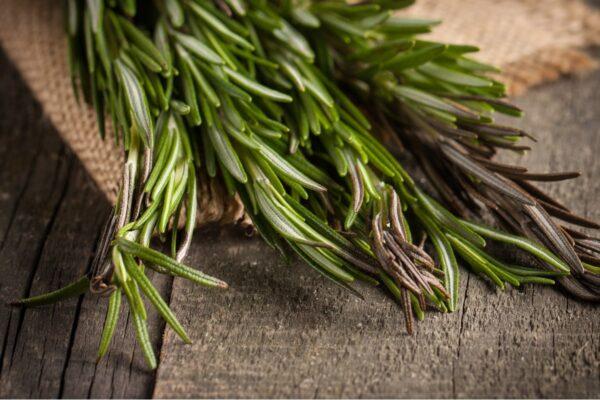
Rosemary (CreatoraLab/Shutterstock)
Scientific research has provided compelling evidence of rosemary’s medicinal properties. A study conducted by a research team at Brock University shows that rosemary extract effectively reduced allergy-induced mast cell activation, a significant finding that underscores the herb’s potential in managing allergies.
Michael Yousef, a graduate student and the study’s lead author, explained the significance of their findings in an article on Brock University’s website.
“There’s a big effect with the rosemary extract. We’ve been able to show in our study that rosemary extract not only alters activation of proteins within mast cells that lead to inflammation, but reduces chemicals that produce the typical inflammatory symptoms many people with allergies experience.”
A clinical trial published in Experimental Biology and Medicine found that rosemary extract inhibited seasonal allergic rhinoconjunctivitis in humans. The trial, a 21-day, randomized, double-blind, age-matched, placebo-controlled parallel group study, treated patients with mild seasonal allergic rhinoconjunctivitis. Participants were treated with rosemary extract–either 200 milligrams or 50 milligrams–or a placebo and recorded symptoms daily in a diary. Those receiving the extract had a significant decrease in neutrophil and eosinophil levels in “nasal lavage fluid.” High levels of neutrophil and eosinophil are used to diagnose allergic rhinitis in patients.
Black Seed Oil
Black seed oil, also called black cumin, comes from the seeds of the nigella sativa plant and has been used for millennia in traditional medicines. It has an enormous list of benefits, including its powerful ability to kill microbes, anticancer properties, support for liver health, protection of skin, stimulation of hair growth, balance of cholesterol, and treatment of infections.
Black seed oil’s three main bioactive components are:
- Thymoquinone (antioxidant, anti-inflammatory, antibacterial, analgesic, antipyretic, anticancer properties)
- Thymohydroquinone (antioxidant, anti-inflammatory, antihistamine, immunomodulatory and anticancer properties)
- Thymol (anti-inflammatory, antioxidant, anti-hyperlipidemic)
According to
a review published in Nutrients:
“The pleiotropic pharmacological effects of black cumin, and its main bioactive component thymoquinone (TQ), have been manifested by their ability to attenuate oxidative stress and inflammation, and to promote immunity, cell survival, and energy metabolism, which underlie diverse health benefits, including protection against metabolic, cardiovascular, digestive, hepatic, renal, respiratory, reproductive, and neurological disorders, cancer, and so on. Furthermore, black cumin acts as an antidote, mitigating various toxicities and drug-induced side effects.”
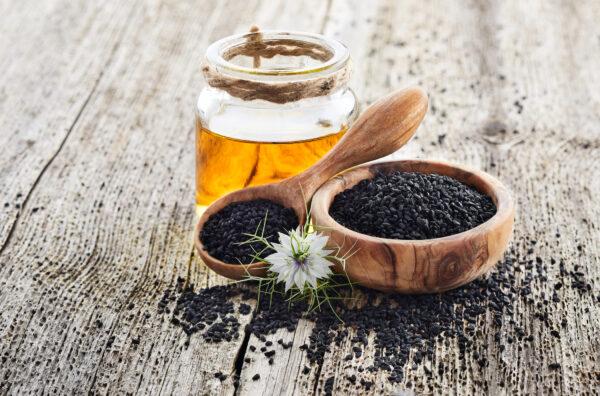
<span data-preserver-spaces="true">Black cumin seeds and oil </span>(Dionisvera/Shutterstock)
A study published in Anti-inflammatory and Anti-allergy Agents in Medicinal Chemistry examined using black seed oil extract as nasal drops to treat allergic rhinitis. Participants were divided into six groups—those with severe, moderate, or mild symptoms—with each group having a control. The active groups received black seed oil, while the control groups received ordinary food oil.
After six weeks of treatment:
- In the severe symptoms group, 58.3 percent were symptom-free, and 25 percent had improved.
- In the moderate symptoms group, 68.7 percent were symptom-free, and 25 percent had improved.
- In the mild symptoms group, 100 percent were symptom-free.
In total, 92.1 percent of participants in the black seed oil group had improved symptoms or were symptom-free, while 30.1 percent had improved in the control group.
After topical treatment with black seed oil, the participants’ ability to tolerate allergen exposure improved by 55.2 percent, which the authors said is significant, compared to 20 percent in the control group.
Final Thoughts
Some additional things that can help minimize allergies and their symptoms are keeping indoor spaces clean, changing air and vacuum filters often, eliminating any mold in your home or workplace, limiting exposure to indoor plants and pets that may trigger your allergies, and consuming an anti-inflammatory diet.
Allergies come with a long list of symptoms that can affect the entire body and make life uncomfortable—to say the least. However, they can be alleviated with many natural medicines, such as the ones above. If you take medications, talk to your health care provider before taking herbs or supplements to ensure that there are no interactions.




